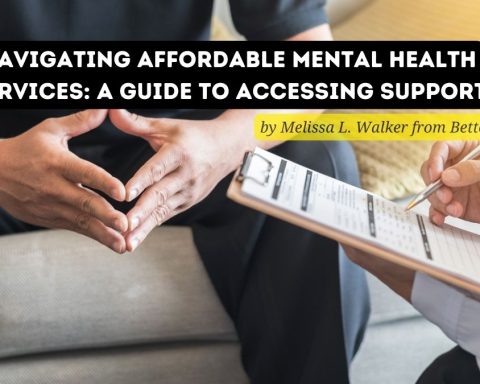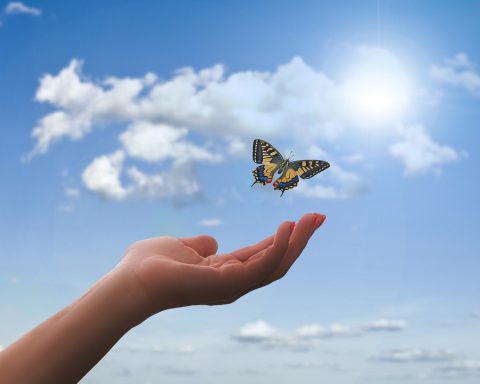Testosterone is an essential hormone and steroid that affects many physiological functions. It is naturally more prevalent as an androgynous hormone in men, and it is therefore much more essential for them to have adequate amounts of it. However, with age, levels of this primary hormone can take a dive, usually for the worse.
Symptoms of low testosterone may include weight gain, anxiety, low energy levels, low libido, insomnia, loss of concentration, and low mood. The fact that older males are at a higher risk for suicide than any other age group, according to WebMD, is a good reason to consider the link between low-T levels and depression. Some studies have shown the link between the two. More and more men look to combat the effects of aging and low testosterone with physician-supervised testosterone replacement therapy. However, it is important to be an informed patient before taking the next steps.
Age As A Factor
Testosterone is required for the maintenance of male functions and attributes. Those include sperm production, facial hair, muscle mass, bone density, and fat distribution. It’s also responsible for energy levels, mental clarity, emotional well-being, and more.
However, with age, a man may experience a decline or changes in the above attributes. T levels begin to decrease about one percent each year on average, beginning at the age of 30. It typically starts to become an issue after age 50, and one article reports that the condition affects 20 percent of males over 50. They may enter a stage known as male menopause, also called andropause.
According to a recent study, low levels of the hormone are caused by one of two factors. The first culprit, primary hypogonadism, is testicular failure that results in higher than normal rates of gonadotropins (LH and FSH) and lower T levels. The second is a disturbance of HPGA, resulting in lower LH, FSH, and T levels.
In primary hypogonadism, which often occurs in males 65 and older, there is less communication between Leydig cells and the LH gonadotropin. This results in less LH- stimulated testosterone. Even in an animal study, it was found that there was less LH-stimulated T in older rats compared to younger mice.
Studies also found that older mice had fewer Leydig cells than younger mice.
As for secondary hypogonadism, in which there is HPGA disturbance, it was found that there were decreases in gonadotropin production and changes in gonadotropin pulsation in both mice and men. The HPGA disturbance that led to the decreased gonadotropins may be caused by a number of factors. Some factors include co-morbidities like smoking and obesity, as well as internal defects that occur over time.
In sum, studies suggest that age plays a role in the production of T and how cells respond to one another. Furthermore, there seem to be external factors coupled with age that affects a man’s ability to produce adequate amounts of the hormone.
The Link Between Testosterone And The Blues
As mentioned earlier, hormone imbalance can lead to a few unpleasant physiological effects. Feeling down is among one of the worst. If you have ever experienced it, then you know how it affects all aspects of your life. Until recently, few experts have given much care to the link between low T and the illness.
According to evidence compiled in a National Institute of Health study, low T is linked to dysthymia and depressive symptoms that include irritability, lack of concentration, and fatigue.
Two types of depressive states were studied: atypical and melancholic. It was found that an atypical depressive state, caused by low testosterone, was associated with high BMI. Symptoms also included anxiety and agoraphobia in addition to Major Depressive Disorder.
The symptoms were less common in a melancholic depressive state, which is the result of increased levels of the hormone.
A correlation was found between the gonadotropin secreting hypothalamus gland and the lowered T levels in a typical depressive state. It was found that the hypothalamus and the pituitary gland affect cortisol levels. Cortisol, unlike its counterpart serotonin, is the stress hormone that has been linked to anxiety and blues.
Treating Depression Caused By Low Testosterone
Antidepressants are overwhelmingly prescribed in this day and age. While they have proven to be beneficial, they sometimes yield little to no positive effects. This has spurred the search for alternative treatments.
Hormone Replacement Therapy
One of the increasingly popular treatments for low-T is HRT (hormone replacement therapy). As stated in a WebMD article, TRT used to be a common treatment for mood disorders in men. However, with the advent of antidepressants, the treatment became less common.
This is unfortunate because there are more patients who aren’t responding to antidepressants because of low-T or borderline levels of the hormone. One WebMD study tested 22 participants. During the study, half of the subjects were administered testosterone gel while the others received a placebo. After eight weeks, it was found that one in three of the men who received testosterone had considerably improved mood, less anxiety, and less depressive symptoms.
TRT is Not a “Quick Fix”
Joshua Zuckerman, President of Ehormones MD, a nationwide testosterone therapy service, states that “a patient must be on hormone replacement therapy for a minimum of six months to achieve full benefits, but most choose our 12-month program due to the volume discounts” the pharmacy offers for longer-term commitments.
HRT has also been proven effective in women who have menopausal symptoms. Two common hormones that women take are progesterone and estrogen. It has also been found that even TRT has been beneficial for women. Some women undergo therapy for improved energy levels, stronger bones, better mood, and stronger muscles.
While supplementation or replacement has many benefits, caution should be taken with TRT. Long-term effects have been known to occur, including the following:
- Skin breakouts
- Prostate cancer
- Increased risk of blood clots
- Fluid retention
- Breast enlargement
- Sleep apnea
Other Causes Of Low Testosterone
Many environmental and lifestyle factors can also affect hormonal levels. As mentioned above, smoking and obesity are two cofactors. There are two common factors to avoid.
Avoid Alcohol
A study was conducted among 8,344 males who were otherwise healthy. It was found that excessive alcohol consumption affects T secretion. It inhibits the hormone by affecting both the hypothalamus gland and testicular production.
Avoid These Estrogen Sources
The environment contains multiple sources of xenoestrogens (man-made estrogen compounds) that interfere with certain hormones and cause estrogen overload. Sources include BPA and phthalates in hair and body products. Furthermore, some plants, like soy, have similar effects on both men and women.
While TRT can be an effective remedy, more trials should be conducted to determine the efficacy of the treatment. If you have decided that HRT is right for you, be sure to consider the risks. Furthermore, consider lifestyle habits to help you cope with your depression, such as talking to family and friends, meditating, eating a healthy and balanced diet, and exercising on a regular basis.








